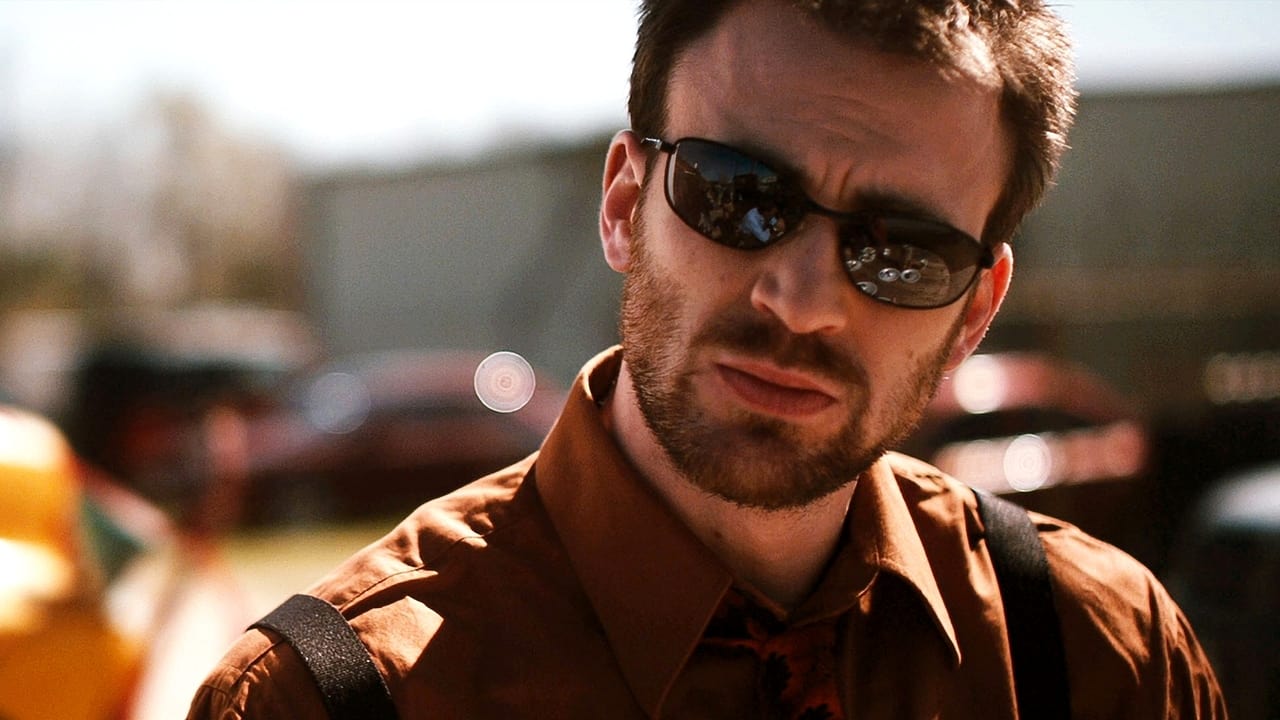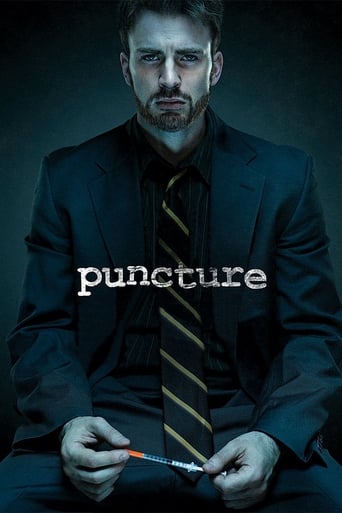tieman64
"In a society governed passively by free markets, organised greed always defeats disorganised democracy." - Matt Taibbi Until very recently, in the United States alone, injuries involving medical needles resulted in health-care workers being exposed to blood-borne diseases (HIV/AIDS, hepatitis etc) at a rate of about 800,000 a year (cf the National Institute of Occupational Safety and Health). Today, in the Third World, millions still die to needle related deaths annually.In 1989, inventor Thomas J. Shaw stumbled upon a news report about a doctor who contracted HIV from a needle-stick injury. Spurred by his belief that engineers were neglecting the dangers faced by medical staff, Shaw set about designing a "safety needle". With the assistance of a $50,000 grant by the National Institutes of Health (NIH), he was able to do so. That's when the trouble started.Attempting to get his safety syringes into hospitals, Shaw increasingly met resistance. The source of his woes? A corrupt arrangement between a big needle maker (Becton Dickinson) and Group Purchasing Organizations (GPOs). What are GPOs? A union of small companies who buy products in bulk from bigger companies. This allows the GPOs to buy cheaply and pass on the savings to those they supply, which in this case amounts to hundreds of private and state-run hospitals.Medical GPOs - essentially purchasing cartels - were originally formed with the intention of saving money and protecting hospitals. It turns out, however, that Becton Dickinson was bribing GPOs, and politicians, to block the implementation of innovative medical products, not just syringes. Becton Dickinson's withholding of gear, and its ability to manipulate the cost of the gear it allowed onto the market, would cost its main consumer, the US health-care system, billions of unnecessary dollars.In 1998, Shaw sought the help of Michael Weiss and Paul Danziger, two lawyers. Michael and Paul drafted up a lawsuit against the GPOs, but the case never went to court. The big companies bought off politicians, lawyers, put the squeeze on Michael and Paul, crippled their law business and bludgeoned Shaw until he agreed to settle out of court.Unsurprisingly, Weiss would soon die of an overdose. Some believe he was assassinated. If so, his death would echo the "mysterious deaths" of many attorneys embarking upon similar cases. Consider the "mysterious deaths" of Shannon Roth and Thelma Colbert, both US attorneys, and both of whom were working on a case against Novation LLC, a notorious medical supplier charged with anticompetitive practises. At least 5 other attorneys working the case were also pressured into resignation. Consider too US attorney Jonathan Luna, "suicided" after being pressured to stop revealing links between cartels and government lobbyists. Journalists and whistle-blowers like Lynn Everard and Mary Walsh are similarly blacklisted for talking about medical cartels.Directed by Adam and Mark Kassen, "Puncture" is a legal drama which documents Shaw's attempts to get his needle on the market. It primarily focuses on attorney Michael Weiss (Chris Evans), the young lawyer who attempted to take the GPOs down. In the film, Weiss is presented as a roiling cauldron of contradictions. Though a talented lawyer with an idealistic streak, Weiss also forever indulges in drugs, sex and booze, and sees his GPO case as but a path to fame and money. Weiss' conflicts echo those of his partner, Paul Danziger, who's torn between the pragmatism of running a failing law business - a pragmatism which requires him to focus on smaller cases just to earn a living - and an idealism which mandates that he stands up against bigger fish."Puncture" never pretends to be anything other than a humble genre film. This is a David vs Goliath tale, in the vein of other fine whistle-blower dramas ("Silkwood", "Norma Rae", "The Insider" etc). The difference here is "Puncture's" grim tone. Here the bad guys don't get taken down, the case never makes it to court and our heroes are virtually ruined. Epitomising the film's pessimism are its references to the Big Tobacco cases of the 1990s, a battle which Michael Mann's "The Insider" presents as a victory won, but which "Puncture" sees as just a conciliatory payoff designed to keep business running as usual."Sometimes the brightest light comes from the darkest place," characters in "Puncture" repeatedly state. But the film itself cautions against gung-ho optimism. When you're talking about hospital supply and pharmaceutical industries, which are worth hundreds of billions of dollars, are expert at eradicating competition, have politicians on their payroll, have massive legal teams and which are themselves wholly or partially owned by giant banks or umbrella groups, you must expect fierce resistance. Businesses have long demonstrated a willingness to kill in the name of profits, and as the climax of "Puncture" shows, even when you've limited the way they prey on the relatively well-defended, they simply hop across the Atlantic and start preying on the defenceless.8.5/10 – See "The Verdict" (1982) and "The Lincoln Lawyer". Incidentally, "Puncture" stars Vinessa Shaw as a young nurse who contracts HIV from a needle. Shaw famously played Domino in "Eyes Wide Shut", a young woman who is likewise revealed to be HIV positive.
radhrh
I won't go into the details of the plot as that has been done by many other reviews, apart from to say the central pillar of the movie is the usual ho hum seen it all before tale of the righteous little man fighting the evil system ( guess who wins! )What sets this apart is that one of the fore mentioned little men is a drug addict, and I mean big time. If you can snort it, smoke it or stick it in your arm our man is front of the line every time. There is hardly a scene goes by that he isn't ingesting some class A or an other.My problem with this is two fold;Firstly, and most important, is that non of these drugs seem to have any effect on him, with the exception of heroin which makes him fall asleep. I'm sorry but snorting coke and smoking crack does not make you into some kind of hyper switched on super lawyer. They turn you into a gibbering moron, period.Secondly, Chris Evans is monumentally miscast in the role. The guy looks like, well Captain America. He does not look like a junky. The film makers might have got away with it but for the fact they have Chris naked from the waist up for most of the movie. Why?! Are they trying to inject some eye candy for the girls and gays in the audience? Or was it to show that as well as being a major drug fiend he also has a body covered in tats? Like tattoos and drugs go together, doh! I'm sorry but its like having Scarlett Johansson playing a bag lady!Take Chris' Olympian physique out of the equation, which isn't easy as its rammed down your throat in every other scene, and his performance is flat, which isn't really his fault as there isn't much for him to work with. There are a couple of scenes where his motives are questioned, but we come away none the wiser. He is obviously a very complex character but the script never really gives any incite into his motivation.I generally like court room dramas, especially if they are based on actual events. And I have nothing against Chris Evans as such either. There is a good, if not important story in here waiting to get out, but this movie fails to be anything other than a rather disappointing piece of entertainment.
zif ofoz
the star of this movie is the story itself. not the actors! i found the main character with his perfect male body, highly skilled legal mind, tattoos and street drug addiction way too incongruous to be taken seriously and to be believable. maybe in a straight porn or gay porn story, but not this story!so at the start of this flick i was not liking it at all. but i stuck with it due to it's most compelling storyline and the two well meaning lawyers taking on a corrupt American corporate behemoth on behalf of victimized health care workers.let me guarantee anyone considering watching this movie that you will become most intrigued by the plot as it becomes ever more destructive to our two protagonist and eventually the antagonist.i do not want to get into the details of this movie because the other reviewers have covered that and i feel a 'review' should be more about how a film affected the viewer. once i grasped what the two lawyers wanted to do i was hooked on watching it to the end. as i stated first, it's the story that makes this movie a real watcher!
ricardovs27
I have to be as honest as possible here: the only reason I came to discover this little indie gem was because of Chris "Steve Rogers/Johnny Storm" Evans participation on it. It was one of those lazy, hot weekend nights, just returning from a much needed bar-hopping experience with some good friends, a little wasted and with no sleep whatsoever in the horizon. Clicked on the online services I happen to subscribe and browsed aimlessly, looking for something to entertain myself waiting for Morpheus' call. Saw a picture of Mr. Evans on the cover, looking all somber and bleak, sporting a beard, holding a needle on his hand. Well, the first thing I thought about was "well, folks, I bet Evans is on total Nic-Cage-on-crack mode; this must be fun to watch". And I have clicked on to start. Boy, and I was wrong. The movie is everything except Evans going haywire and stuff. A highly enthralling and interesting subject, supported by an excellent cast and compelling drama, "Puncture" makes a louder thud than anything a few bearded fatsos could dream of, simply by presenting facts and giving us characters we care about. Evans is at his best, aided by the co-director Mark Kassen, the surprisingly restrained Marshall Bell and Bret Cullen in their task to raise some questions. I suggest to watch this precious movie back-to-back with "The Constant Gardener". That aspirin will never be the same again.

